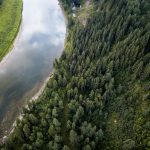 June 12, 2018 3:13 am
Published by Climate Extremes
June 12, 2018 3:13 am
Published by Climate Extremes
This project will connect plant water use and stomatal conductance models differentiated by vegetation-soil systems with land surface models to provide new insight into the impacts of the built environment on moisture fluxes that influence heatwave intensity. Then it will investigate the climate impacts of the dynamic response of greenery in extreme heat conditions.
 May 28, 2018 5:39 am
Published by Climate Extremes
May 28, 2018 5:39 am
Published by Climate Extremes
In contrast to expectations, tropical thunderstorms without cold pools actually intensify, demonstrating unequivocally that cold pools can be detrimental to convection. Further investigations suggest that organised systems become maintained through atmospheric wave-convection interactions, which is a significantly different process to the established theory.
 April 11, 2018 12:50 am
Published by Climate Extremes
April 11, 2018 12:50 am
Published by Climate Extremes
Students and ECRs have an opportunity to take part in a voyage to a standing meander of the Antarctic Circumpolar Current (ACC) south of Tasmania. They will undertake a 3-dimensional survey of the velocity and density structure of the meander, deploy a fleet of EM-APEX profiling floats and conduct time series measurements.
 February 23, 2018 4:21 am
Published by Climate Extremes
February 23, 2018 4:21 am
Published by Climate Extremes
This study explored the key sources of uncertainty when scaling leaf-level understanding of water-use efficiency to ecosystem scales. The results provide key insights into interpreting (ecosystem-scale) eddy-covariance derived water-use efficiency in an ecophysiological context.
 February 23, 2018 3:19 am
Published by Climate Extremes
February 23, 2018 3:19 am
Published by Climate Extremes
This paper combines existing global evapotranspiration estimates to create a new global product with an observationally constrained estimate of uncertainty. It utilises the latest release of ground-based estimates to show that even point-based evapotranspiration estimates have information about much larger spatial scales.





